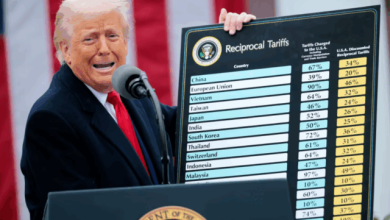Trump administration targets remittances with 5% Tax, impacting African diaspora

A group of Republican lawmakers in the U.S. House of Representatives has introduced a draft bill that would impose a 5% excise tax on all remittances sent abroad, a move likely to impact millions of immigrants and developing countries, especially across Africa.
According to the draft legislation, senders of international money transfers would bear the cost of the tax, which would be collected quarterly by the U.S. Treasury Department. The bill is part of a broader strategy by President Donald Trump’s administration to toughen economic and immigration policies.
Diaspora-Dependent Economies at Risk
The proposed remittance tax has triggered alarm among experts and governments in Africa, where diaspora remittances serve as a lifeline for millions of families. In countries like Nigeria, Ghana, Kenya, and Ethiopia, remittances account for a significant portion of GDP, often surpassing foreign direct investment and aid flows.
“This bill, if passed, could undermine household incomes, education funding, and healthcare access in many parts of Africa,” said a regional economic analyst based in Accra.
Policy in Line with Trump’s Tougher Agenda
The remittance tax proposal reflects a continuing trend under the Trump administration toward stricter border control, immigration limits, and transactional foreign policy. It comes on the heels of recent crackdowns on asylum seekers, expanded visa restrictions, and tariff-driven trade negotiations.
Supporters of the bill argue that the funds raised through the tax could be used to bolster U.S. border security and reduce undocumented immigration. Critics, however, label it as regressive and harmful to global economic solidarity.
What’s Next?
The bill is still in its early stages and faces potential legal and diplomatic scrutiny. Several humanitarian and immigrant advocacy groups are expected to push back against the measure, warning that it could strain U.S. relations with key global partners and add financial hardship to already vulnerable communities.
As debates unfold in Congress, millions of diaspora families are watching closely, uncertain of how the proposed tax might affect their ability to support loved ones back home.




